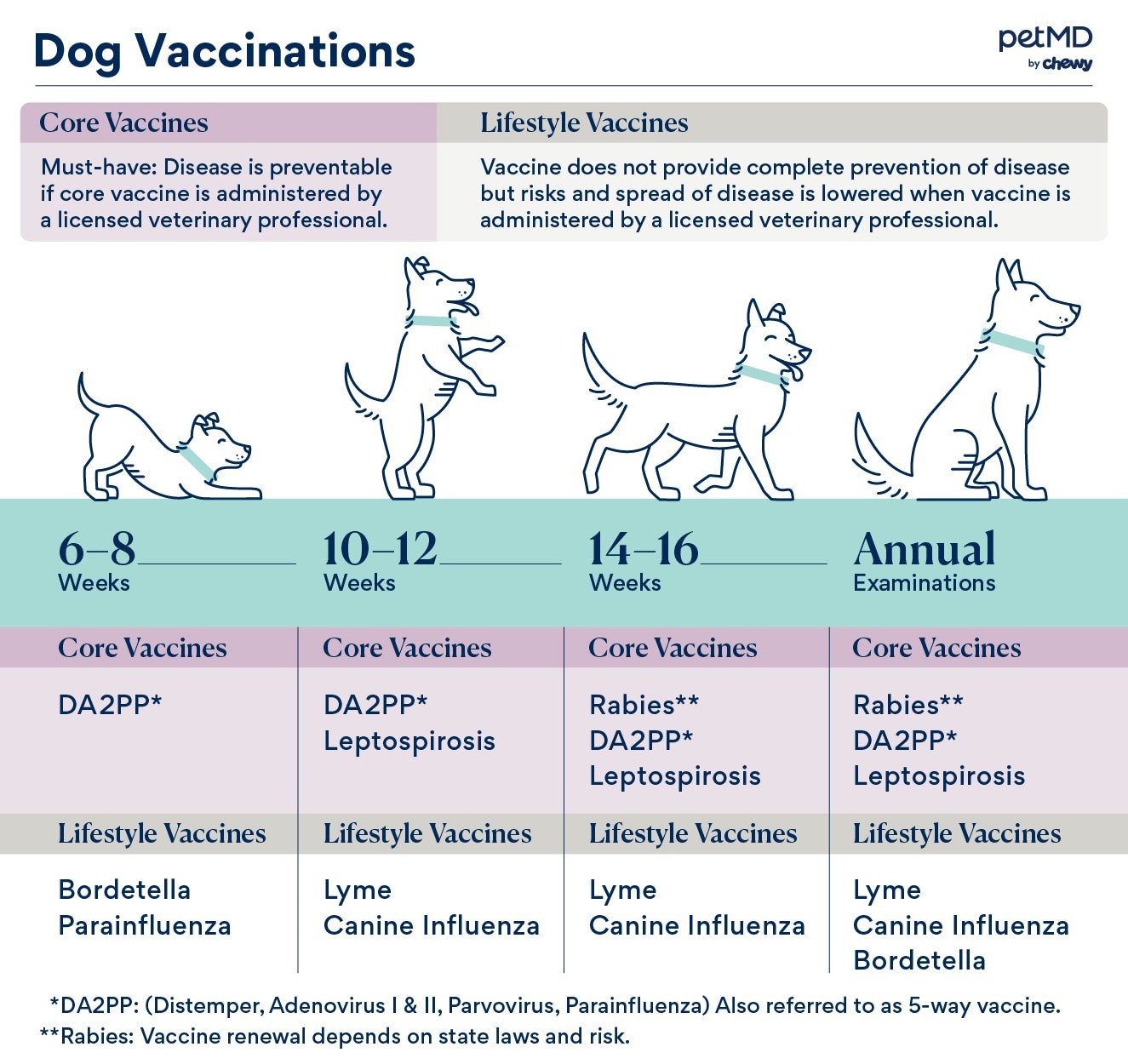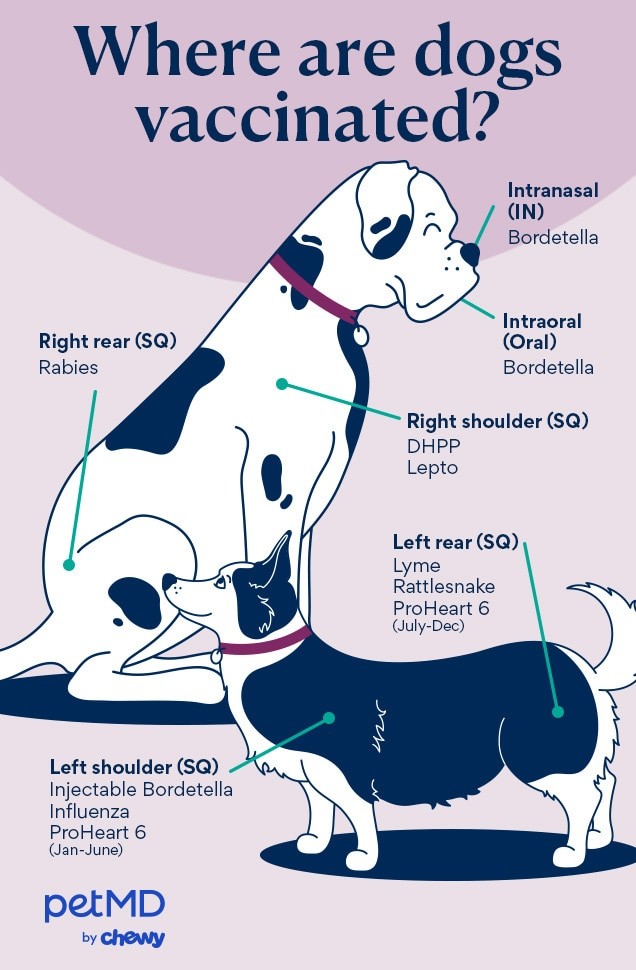Dog vaccinations are a crucial part of ensuring your furry friend stays healthy throughout their life, from puppyhood to their senior years. They are the safest and most cost-effective way to protect your dog from many infectious, preventable diseases. Understanding the costs associated with these vaccinations is essential for responsible pet ownership. This guide provides an overview of puppy injection costs and related information to help you budget for your new companion’s health needs.
What Are the Common Dog Vaccinations?
Dog vaccinations are generally divided into two categories: core vaccines and lifestyle vaccines.
Core Vaccines
Core vaccines are recommended for all dogs and puppies. These vaccines protect against diseases that are widespread, pose a significant risk, and are often fatal. Core dog vaccines include:
- Canine Distemper/Adenovirus-2 (Hepatitis)/Parvovirus/Parainfluenza Vaccine (DA2PP, DHPP, or DAPP): This is a combination vaccine protecting against multiple diseases.
- Rabies Virus Vaccine: Required by law in many places, rabies is a fatal disease affecting the nervous system.
- Leptospira (Leptospirosis) Vaccine: This vaccine protects against a bacterial disease that can cause kidney and liver damage. It can be combined with the DA2PP vaccine as DHLPP.
Lifestyle Vaccines
Lifestyle vaccines are considered optional and are administered based on factors such as your pet’s lifestyle, geographic location, and risk of exposure. Your veterinarian will consider these factors to determine which lifestyle vaccines are appropriate for your dog:
- Geographic location and prevalence of certain diseases
- Participation in activities like doggy daycare, dog parks, boarding, or grooming
- Lifestyle factors, including travel, hiking, or exposure to wildlife
- Overall health of your pet
Lifestyle vaccines include:
- Bordetella bronchiseptica (Kennel Cough) Vaccine: Protects against a common respiratory infection.
- Borrelia burgdorferi (Lyme) Vaccine: Protects against Lyme disease, a tick-borne illness.
- H3N2/H3N8 (Canine Influenza) Vaccines: Protects against different strains of canine influenza.
- Crotalus atrox (Rattlesnake) Vaccine: Protects against rattlesnake venom, recommended for dogs in areas with rattlesnakes.
Puppy Vaccine Schedule
Puppy vaccines are typically administered in a series of shots every two to four weeks until the puppy is at least 16 weeks old. This schedule ensures that puppies develop adequate immunity as their maternal antibodies wane. Certain breeds or puppies in high-risk areas may benefit from extending vaccinations to 18-20 weeks. Here’s a typical puppy shot schedule:
| Age | Core Vaccines | Lifestyle Vaccines |
|---|---|---|
| 6–8 weeks | DAP* | Bordetella Parainfluenza (often included in DA2PP combo vaccine) |
| 10–12 weeks | DHLPP | Lyme, Canine influenza |
| 14–16 weeks | DHLPP (vets prefer giving final DHLPP vaccine at 16 weeks or later), Rabies (if required by law) | Lyme, Canine influenza |


*DAP (Distemper, Adenovirus/Hepatitis, Parvovirus. Sometimes also referred to as DHP or DHPP if parainfluenza is included, or DHLPP when Leptospirosis is included.)
Consult with your veterinarian to determine the appropriate puppy vaccine schedule for your specific pet.
Adult Dog Vaccine Schedule
Adult dogs require core vaccines and any lifestyle vaccines deemed necessary by your veterinarian. A sample adult dog vaccination schedule may include:
| Frequency | Core Vaccines | Lifestyle Vaccines |
|---|---|---|
| Annual vaccines for dogs | Rabies (initial vaccine), Leptospirosis | Lyme, Canine influenza, Bordetella (sometimes bi-annually) |
| Dog vaccinations every 3 years | DAP, Rabies (after initial vaccine) | No three-year lifestyle vaccines are currently available |
Your veterinarian will determine how long a vaccine will remain effective for your pet. Booster vaccines or annual schedules may be recommended if your dog is overdue or receiving a vaccine for the first time.
What Diseases Do Dog Vaccines Prevent?
Vaccinations protect your dog from various illnesses:
- Rabies: A fatal virus that affects the nervous system and can be transmitted to humans. Rabies vaccination is legally required in most areas.
- Distemper/Adenovirus (Hepatitis)/Parvovirus (DAP): This combination vaccine protects against highly contagious and potentially deadly diseases.
- Bordetella and Canine Parainfluenza: These agents cause kennel cough, a highly contagious respiratory infection.
- Canine Influenza: Highly contagious and can cause cough, nasal discharge, and fever.
- Leptospirosis: A bacterial disease that can cause kidney or liver failure.
- Lyme Disease: A tick-borne disease that can cause fever, lethargy, and lameness.
Which Dog Vaccines Does My Pet Need?
Collaborate with your veterinarian to determine the most appropriate dog vaccine schedule based on your dog’s individual needs and lifestyle.
How Much Do Puppy Injections Cost?
So, How Much Do Puppy Injections Cost? Puppy and dog vaccine costs can vary depending on your location, the veterinarian’s office, and the type of vaccines administered.
- The basic DHLPP vaccine typically costs $20–$60 per shot.
- The rabies vaccine may range from $20–$30.
- Non-core vaccines generally cost less than $100 per shot.
Vaccines are an essential component of dog and puppy care, making it crucial to budget accordingly, especially when getting a new puppy.
Starting puppies on their vaccines is an investment, but this financial obligation decreases once they transition to an adult vaccine schedule. Many local animal shelters or humane societies offer low-cost or free vaccine clinics to help offset the cost. Additionally, pet insurance may cover some or all core and non-core vaccines through wellness or preventative care plans.
Can Pets Have Adverse Reactions to Vaccines?
While rare, dogs can experience adverse reactions to vaccinations. Monitor your pet after their appointment and contact your veterinarian if any of the following symptoms occur:
- Discomfort or swelling at the injection site
- Mild fever
- Decreased energy and appetite lasting longer than 24 hours
- Vomiting
- Diarrhea
- Swelling of the muzzle around the face and neck
- Coughing
- Difficulty breathing
- Itchy skin
- Hives
Seek immediate veterinary care if your pet shows any of these symptoms, as they could indicate a life-threatening reaction like anaphylaxis.
Puppy and Dog Vaccines FAQs
How many vaccines does a dog need?
The number of vaccines a dog needs depends on its age, lifestyle, risk factors, and geographic location. Consult your veterinarian to create an individualized vaccine schedule.
What happens if your dog is not vaccinated?
Unvaccinated dogs are susceptible to preventable diseases that can be expensive to treat and potentially fatal. Some diseases, like rabies and leptospirosis, can also be transmitted to humans.
Is it ever too late to vaccinate my dog?
No, it is never too late to vaccinate a dog, even if they are older.

